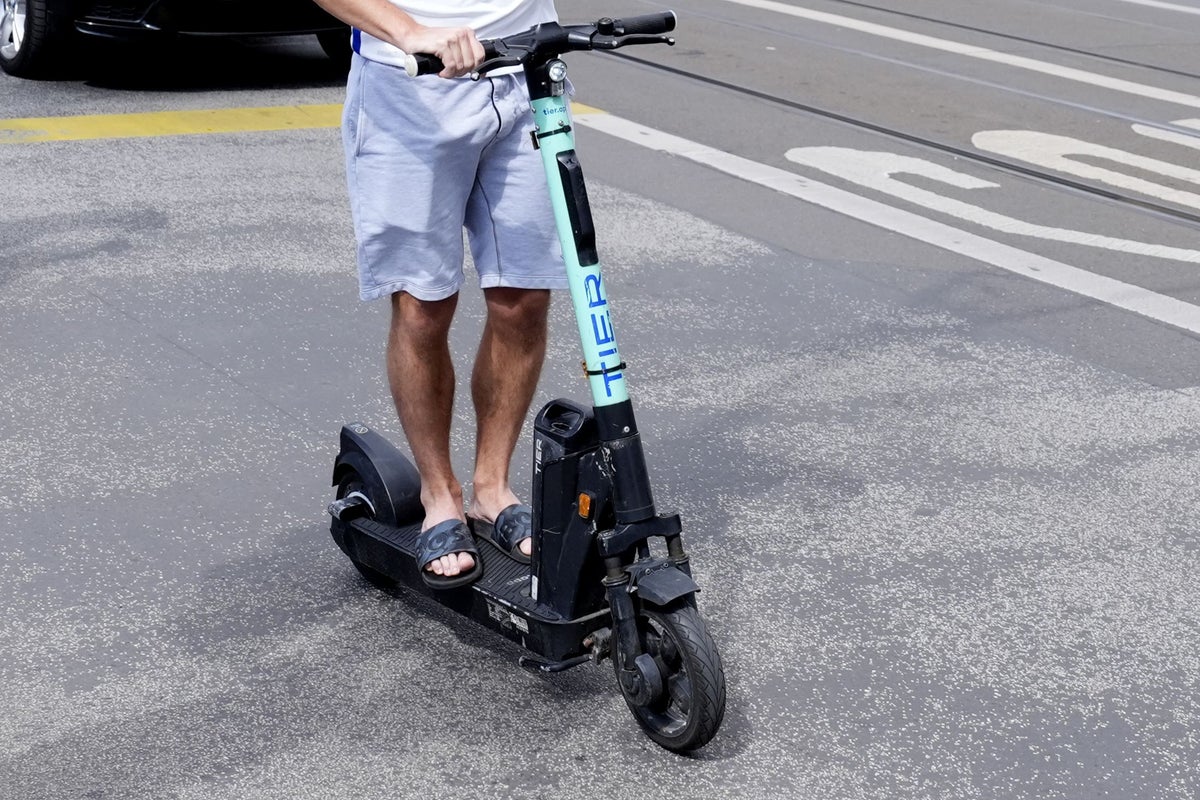
Electric bikes and scooters ridden or parked on pavements are causing fear and anxiety for blind and partially sighted people, according to a new report.
The growing use of micromobility transport options is making streets a “nightmare” with only one in 10 (9%) blind people confident walking in their own neighbourhood, charity the Royal National Institute of Blind People (RNIB) said.
The vast majority (92%) of 1,197 blind or partially sighted people surveyed for the report said they have to walk into roads as pavements are obstructed by parked cars, bikes or e-scooters.
More than a third of respondents (34%) said they had collided with a street obstacle in the previous three months.
One person described how they now have to rely on a cane because their guide dog was withdrawn after becoming stressed by trying to walk along blocked pavements.
Many cities have introduced dockless rental schemes for electric bikes and scooters.
Users are requested to park the vehicles in a way that does not inconvenience other people, but this does not always happen, with bikes and scooters often strewn across pavements.
Erik Matthies, RNIB’s policy lead for travel and transport, who has sight loss, said it is getting harder for blind and partially sighted pedestrians and wheelchair users to move independently because of “more and more obstacles on the streets”.
He went on: “I’m always having to double check or think about how I am going to get around by foot.
“This is tiring, takes up more time and makes me feel unsafe too.
“E-scooters and dockless bikes left on pavements have added to the issues with cars being parked on pavements, and advertising boards strewn all over.”
He added that not knowing an e-bike or e-scooter is about to pass you “at speed” is causing “mental health issues” for some people.
The RNIB is calling on the Government to create “inclusive standards” for pavements “that can be robustly enforced”, and urging local authorities to take action such as maintaining access to pavements during roadworks, better monitoring of food delivery courier cyclists, and improved regulation of rental e-scooter and e-bike schemes.
A Department for Transport (DfT) spokesperson said: “Safety is our top priority, and private e-scooters remain illegal on public roads.
“We’ve been clear that with any trial schemes, local authorities must make sure e-scooters don’t obstruct others, particularly disabled people.
“To clamp down on reckless parking, we are bringing forward new powers to regulate e-scooters and e-bikes, letting local areas shape schemes to better meet their needs, whilst tackling badly parked cycles which are disruptive to many road users.”
Tom Hunt, who chairs the Local Government Association’s inclusive growth committee, said: “Councils take their responsibilities to ensure pathways and pavements are accessible for all very seriously.
“The inclusion in the Devolution Bill of further regulatory powers for local authorities to manage shared e-scooter and e-bike schemes will help to tackle inconsiderate parking of such vehicles.
“The Government must act on the use of an estimated one million privately-owned e-scooters, which remain illegal to use on our public roads and lack any of the safety restrictions of e-scooter hire schemes, and the increasing number of unlicensed and uninsured electric motorbikes being sold and used as e-bikes.”
Latest DfT figures show 52 pedestrians were seriously injured in collisions with e-scooters in England in 2023.
Private e-scooters cannot legally be used in public areas in the UK, although they are a common sight in many urban areas.
Legal trials of rental e-scooters on roads have been ongoing in towns and cities across England since July 2020.
